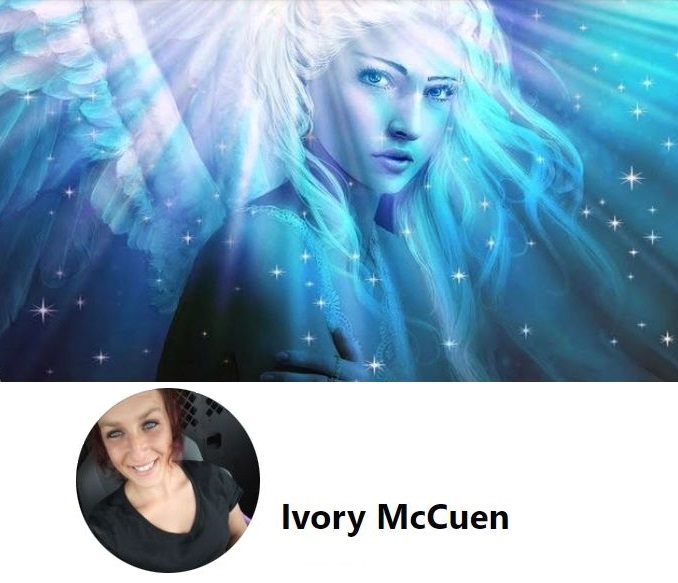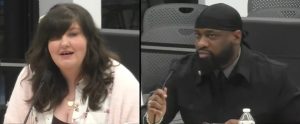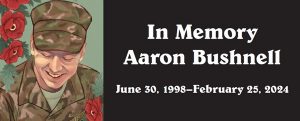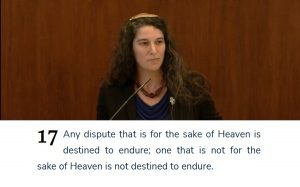Street News for Dec. 6, 2021
9 min read
The late Ivory McEuen died on the streets of Eugene after authorities forced her and other unhoused residents to leave a City park.
With the latest Eugene Street News, KEPW’s Julie Lambert spoke with Decriminalize Homelessness Eugene.
[00:00:07] Thomas: I’m Thomas and I’m here with Decriminalize Homelessness Eugene, and we are here today in solidarity with one of our mutual aid volunteers who was passing out food at Washington Jefferson Park when he saw EPD and the City’s park ambassadors engaged in an unlawful sweep. They were sweeping someone out of the park that they didn’t like, who had packed up their stuff for a day and come back.
[00:00:27] So our mutual aid volunteer was simply asking where that person could go. The police officers involved, three of them, I believe to four of them, didn’t give him proper time to respond and grabbed him within 30 seconds of telling him to move and placed him in handcuffs and arrested him. And he is currently charged— on his arrest slip they wrote ‘Transient’ and gave him a parks ban, which is weird because he lives here in Eugene, has lived here for years, has small business. And they’re just using their same tools of harassment against the mutual aid volunteers and service providers that they are using against our unhoused residents, which is kind of disgusting to see happen here in Eugene. We have this reputation as being a green Mecca place of free thought and free thinking but in fact, when it comes right down to it, you ask any questions, you get arrested.
[00:01:13] And so it just feels like we’re just here to say, what the heck is going on 30 spots. It’s not enough for 3000 homeless people. We expect more from our city. You are helping a lot of the evicted. Do you know where those people went? They went everywhere and all over the place. They are no longer available to provide services to. I find them to get them the things they need, like their IDs. When they request IDs, we can’t find them to get them food because they have to hide it because EPD, when you get a parks ban, basically, if they see you again, they arrest, you either get a failure to appear, which is not showing up for your parks ban hearing, or you get a 30 to 90 day ban from all public spaces in the city of Eugene, which is every single square inch of Eugene, including mitigation sites, thank you Jon Ruiz.
[00:01:55] So now we have nowhere for them to go, except for perhaps ODOT land. And ODOT is kind of similar because Eugene has leases with all of ODOT land in the City of Eugene, so they can just apply Parks’ rules to the ODOT land and arrest you there. So people are basically on alleys, in very dangerous positions, in bike paths, on the road, parking and dangerous cul-de-sacs and hiding wherever they can, which keeps them away from where they need to be, in a way, from services that they require to get back into housing.
[00:02:20] These are residents of Eugene. A lot of them were recently housed, lost their housing due to fire or due to a raise in rent that they were not predicting or are on fixed income. So these are just our residents here in Eugene. They’re currently residing in tents. All them, it would be awesome if the City could open up some land or buy some land that they could live on with a no barrier shelter, instead of putting up fences and cameras all around them and watching them and monitoring them.
[00:02:41] Unfortunately, we don’t do that. What happens to them is that they lose their possessions. Some of them freeze to death like Ivory, um, Ivory McEuen last year, frozen when she was swept out of Westmoreland Park. That sweep was called in by the West/Jeff Neighborhood Association. And thank you for that. She was 29 and a friend of mine, but yeah, where do they go? They don’t go anywhere in particular. They have to hide. They lose their things. They don’t have blankets or sleeping bags anymore because they get those things get arrested and thrown away. Sometimes they save some of them. That’s not really the case in the majority of the time.
[00:03:11] Julie Lambert: What do you see the City or the County not doing that you think that they should be easily.
[00:03:19] Thomas: Oh, recommending a place for them to go; providing services, sending this over to service providers, instead of, basically they have deputized the City Parks staff and the park ambassadors, hired park ambassadors with a history of policing, or like in the case of Molly Malone, actual police officers to relieve park ambassadors.
[00:03:37] And they run the place like they’re cops, which, no offense, cops have a job, but a lot of the time that is to intimidate people into going somewhere else or pushing them out of what’s causing problems. And causing problems in Eugene apparently comes from the Chamber of Commerce who says, ‘You’re costing us business.’
[00:03:51] Julie Lambert: No, I just wanted to know if you were getting enough cooperation within the City and within within the County. And then with the addition of, you just mentioned the Chamber of Commerce, they just came out with a big report on homelessness.
[00:04:04] Thomas: They spent a lot of money on that.
[00:04:06] Julie Lambert: Where do you think that’s going to go?
[00:04:07] Thomas: Oh yeah. They’re just harassing everyone into leaving the cities. They’re telling them straight up. You can’t be homeless here. City Parks and Rec oftentimes will harass people and tell them go somewhere else. ‘I’m going to my nice house, get out of my city,’ and the park ambassadors team of harassers run around harassing people, taking their things and giving them parks bans, and citations via EPD.
[00:04:25] What is the city doing? The city is pretending that it’s opening up these safe spots. Wonderful, that’s wonderful. Now we just need 3000 of them. A lot of people don’t really qualify for the safe spots. they don’t feel safe in the safe spots because of the requirements put upon them there. Um, for those people, they need an option. Those options could be anywhere from leasing a Forest Service campground to opening a campground. The city doesn’t want. The city really wants to outsource this to some private corporation like St. Vincent DePaul’s or another group, which has religious freedoms to persecute against anyone that they deem fit not to allow him to provide service to.
[00:04:56] That’s been my complaint is, that the City needs to actually show up and the City needs to actually do something and 30 spot in a city where 3,800 in the month of May applied for services claiming to be homeless, that’s not enough. 30 is not even the 1%, I think we can do better with our tax dollars.
[00:05:11] Julie Lambert: So when people do get displaced in and they get tickets then, what is, what is that procedure like for them? And what does that outcome, what’s typical?
[00:05:19] Thomas: Well, the criminal justice system is, is two of those three things. It’s criminal and a system. It’s basically a revolving door to get you incarcerated in the carceral system. The first thing they do is get your ID and then they tag you,. And they mark you for later arrests. Parks ban today, or a warning today, move on; a move along order, which is just the cops showing up and telling you to get the F out, which happens all the time. Basically just puts you on their radar. And then later when they catch you again and again, they’ll just build a file on you and say that you are an indigent criminal because you are living in a tent on the sidewalk. So they criminalize you by ticketing, citations, and parks bans. And they’ve using the park system to do that.
[00:05:55] Julie Lambert: Why did you earlier reference this as a kangaroo court?
[00:05:58] Thomas: Oh, the Muni Court I’ve always felt as a kangaroo court. And I’ve lived in Eugene since 1995. When I arrived here as a homeless teenager, because I was kicked out of my house for no other reason than my parents didn’t like me. And didn’t like what I was saying. And before that the Muni Court we’ve always seen it as the court of no record, which it is. They don’t keep a stenographer in there. There’s no documentation of what transpires in the courtroom. It just kind of, it’s where they funnel all of the poor under underprivileged people of the city. So they don’t gum up the actual prison and the criminal justice system. Which is over on their side of town. The muni court is kind of just where they send you to rubber stamp your citation or arrest and get you to pay the money or puts you on the prison Sheriff’s work group. But that is also my opinion through someone else might have different opinion on the Muni Court,
[00:06:39] Julie Lambert: actually heard very similar. Yeah. And would you like to say, what would you like? For example, the neighbors that are around that can, that could be helping, what would you have to say to them?
[00:06:50] Thomas: I, to say to everyone that what we need here is not complaints against our unhoused residents and our mentally ill residents. What we need is complaints against the City for not creating no-barrier shelters, for not leasing land that they can camp on for not buying places where RVs can be parked permanently to live.
[00:07:08] We’re not creating other options that are pushing everyone into the city center, which created this chaos and confusion that, which is what the city has done since the pandemic is to push everyone into a centralized location. So that creates a problem. They could have actually been spending their time and money, opening up other spaces, paying food carts to deliver food, uh, keeping the catering businesses and in the restaurant industry alive here in Eugene, they have just done none of that. They have just put all of their faith in EPD to solve this. It’s not really something EPD can do. You can do, they have a job. And that job is not social welfare. It is not housing. It is not getting people into mental wellness programs or into, uh, addiction problem programs. EPD does what it does is not really should not be dealing with the homeless. And the park ambassadors. Well, I would like to see them actually replaced with real park ambassadors and not this rogue deputized.
[00:07:57] Julie Lambert: And if people would like to help out, is there a way that they can donate friends or donate sleeping bags or tents or anything that you’re a native?
[00:08:07] Thomas: Um, I would always suggest donating to White Bird. They do a lot of good outreach and work on the streets. A lot of groups are doing outreach and feedings and tents and sleeping. It is an eternal black hole when you’re trying to keep up with the City’s sweeps, when you’re trying to get people sleeping bags and tents. And so we can no longer keep up with that ourselves. We’ve just gone into the black, too many times on losing tents to EPD and the city.
[00:08:32] So things you can do is just call your city councilor and call the mayor and remind them that you want them to open up a city sponsored no barrier housing option for on house residents to get their shower truck operational, that’s sitting in their storage yard that has done nothing because they want someone else to run it for them; to get the things that they’ve gotten, their huts that they have, these little emergency huts they have out. No one’s in them. They’re really just looking for someone else to take care of this problem for them. And they just need to put on their big kid pants and actually help out people who have low income and no income. There are also residents here and they’re also citizens.
[00:09:07] Julie Lambert: That’s right, for what it’s worth. This is all of our home.
[00:09:10] Thomas: This is all of our home. And some people have to live in tents and they could really be a lot nicer to them. They could help them. They could actually provide stepping stones into housing, which would be starting with a PO box, a safe location to put your tent and a place to get a shower and some running water. And perhaps some electricity.
[00:09:27] Julie Lambert: I think one of the important things is be able to look that person in the eye and see them as a human being and not just it’s a problem
[00:09:34] Thomas: that would also be really great. And I would really appreciate it. Take a bet step back and realize that each and every one of us is only one emergency one accident away from being homeless.
[00:09:44] Julie Lambert: This is Julie Lambert for KEPW, Eugene PeaceWorks Radio.




